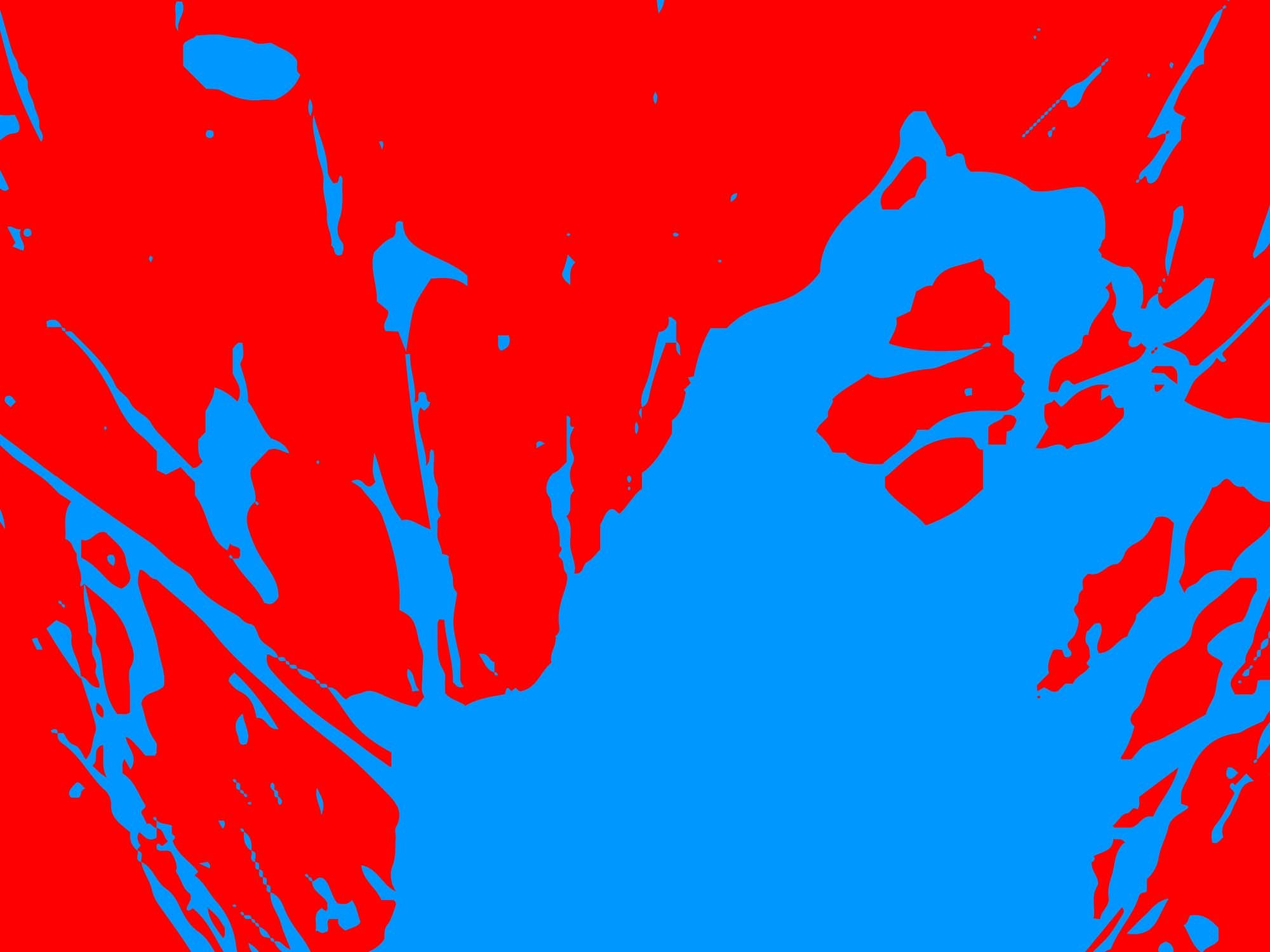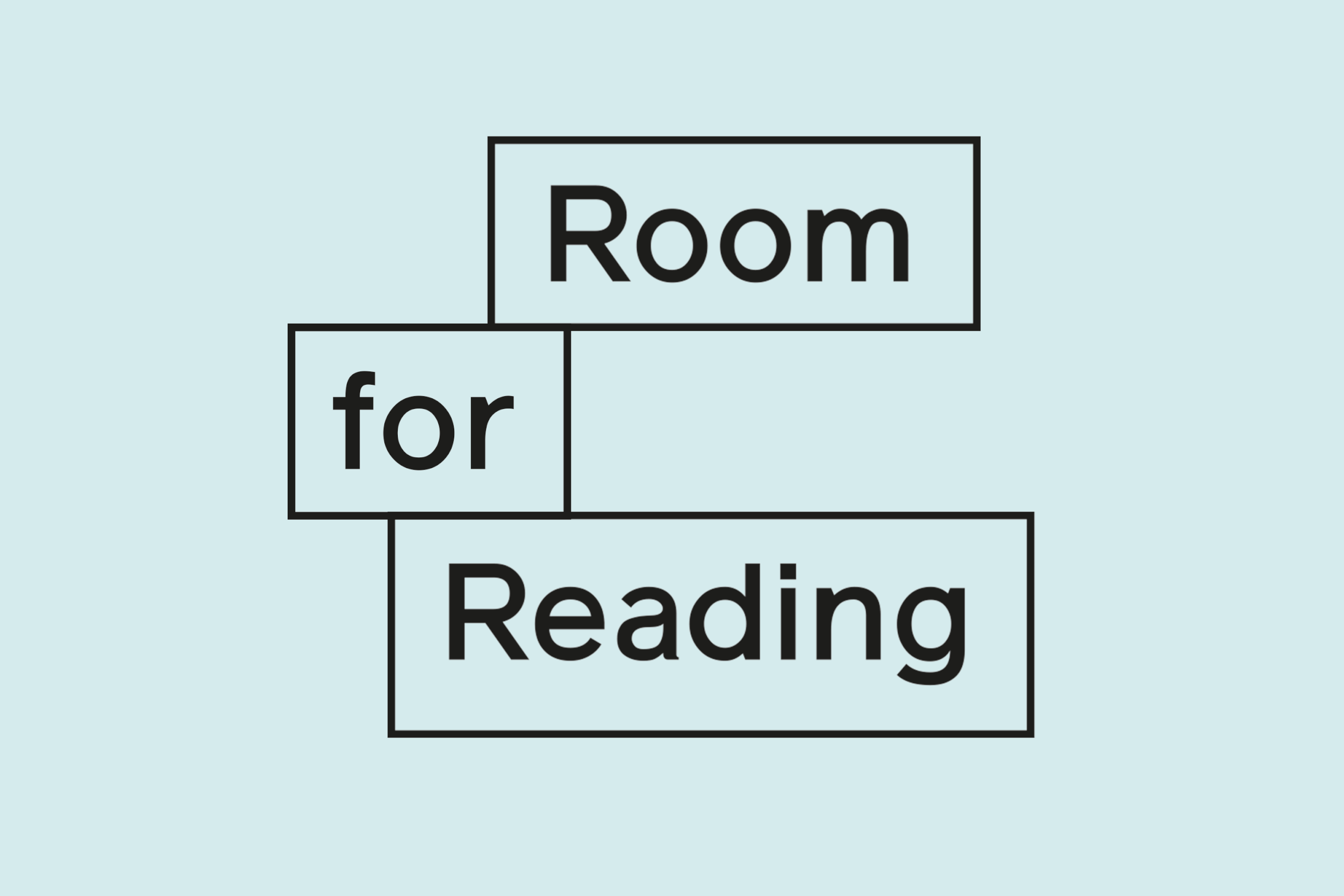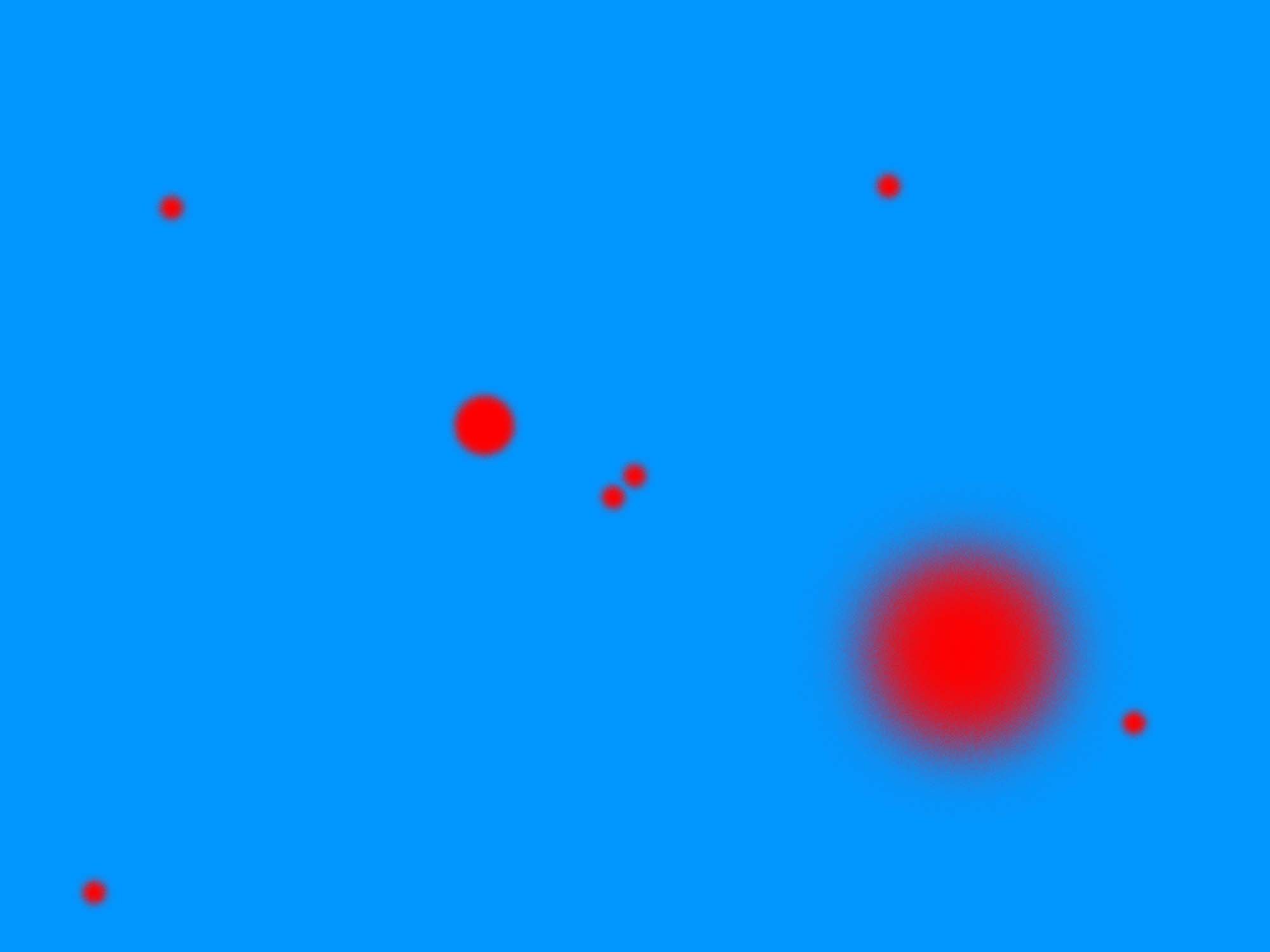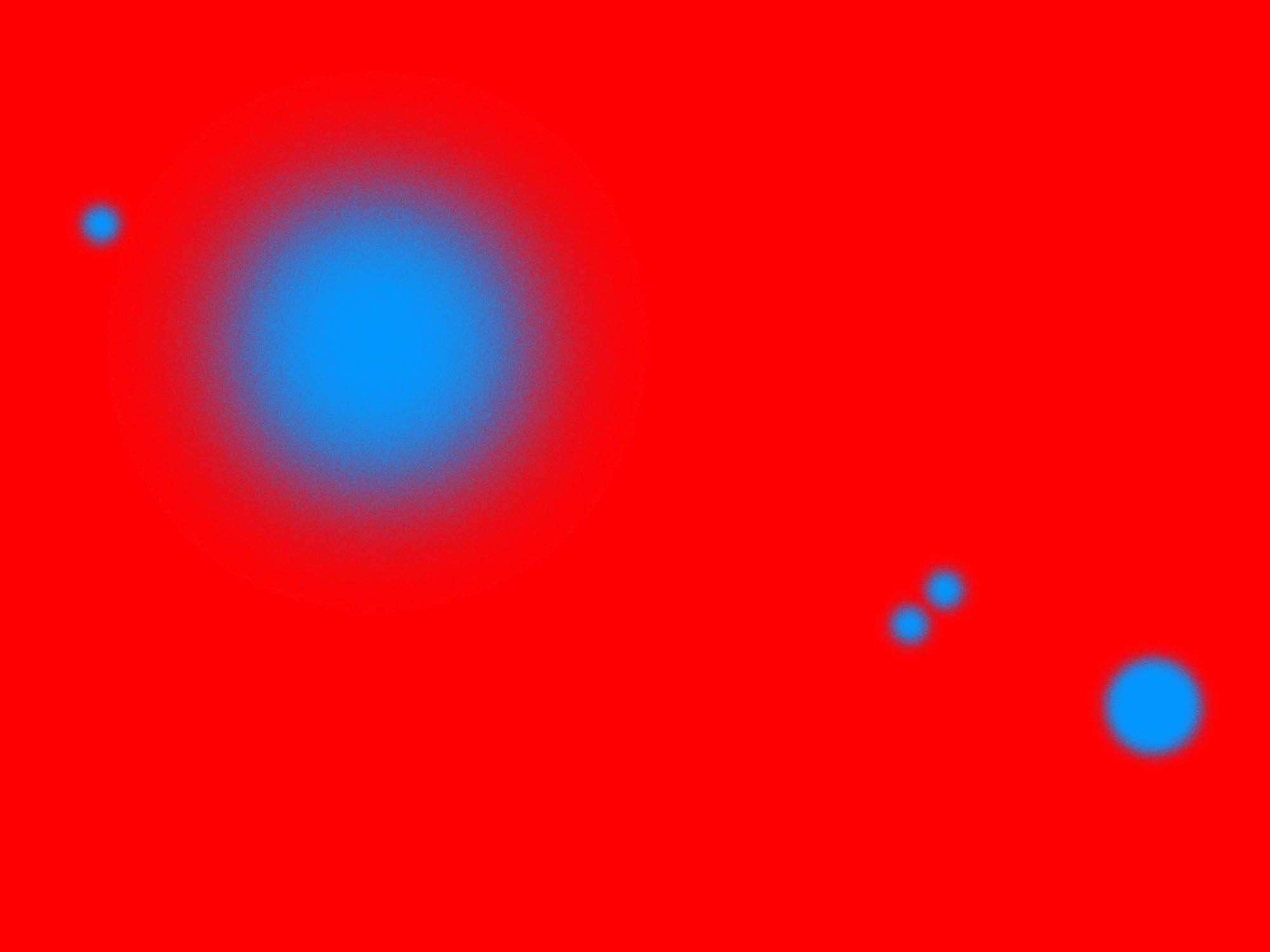Design: Tom Joyes
‘open stacks’, a digital video installation by Yuri Pattison, is situated in the heart of one of the largest public libraries in Europe, The Mitchell Library. Unfolding across multiple screens, Pattison’s videos use the popular online format of ‘ambience videos’ which combine slow-moving visuals and soundscapes meant to aid focus and relaxation. Pattison’s ambient videos have been created in collaboration with an ambient YouTuber, animating base images produced by the artist using AI image generation tools to blend original and found photographs.
Yuri Pattison, ‘open stacks’ (2023)
Digital video, 4 channel audio, duration variable.
Yuri Pattison, ‘open stacks’(2023)
Repurposed library shelving, Dell PowerEdge R620 server modified with RTX 3060 GPU, digital video, 4 channel audio, headphones, desktop monitors, LED ceiling lights, ceiling speakers, cables, books, dust.
Installation view, The Blythswood Room at The Mitchell Library, 2023. Courtesy of the artist. Photo: Ruth Clark.
A second soundtrack, audible via headphones, presents a series of essays voiced by disembodied AI-generated narrators who ruminate broadly on the consequences of a world steadily overwhelmed by the private, commercial interests of technocratic powers. These unidentified, yet somehow familiar, narrators postulate variously on creative homogenisation and increasing cultural degradation; the pillaging of our shared intellectual and artistic heritage; eroded workers’ rights and the status of labour economies; and the social and political consequences of the unchecked centralisation of knowledge.
The voices have been programmed to mimic an amalgam of accents and anachronistic speech patterns recognisable for their perceived intellectual authority. The words they ventriloquise, which are unreliable, meandering and sometimes bizarre, are also authored by AI tools (large language models), as with the images on screen. Slipping between sense and nonsense, the video essays, made up of poor copies and degraded data, expose the intellectual limits and biases of AI. They make clear AI’s necrotic tendency to endlessly resample scraps of past human endeavour – with nonetheless alluring effect.
‘open stacks’ explores recent digital trends involving the rapid encircling and extraction of knowledge by networked technology, artificial intelligence and corporate power. Pattison addresses the library space as a stage upon which linearity, time, and veracity are in a constant state of recirculation, reformation and collapse. Through critically confronting immediate concerns and current discourse on AI technology, Pattison speculates on what appears to be history’s closing chapter of individual authorship, and the opening of a new one dominated by corporate intellectual property. ‘open stacks’ asks what becomes of human intelligence, and our perceptions of history and the present, when information is confined rather than accessible to all. The installation demonstrates the seductive aesthetics of tech whilst hinting that it is not yet too late to reclaim freedom of knowledge from extractive neoliberal powers.
Yuri Pattison, ‘open stacks’(2023)
Repurposed library shelving, Dell PowerEdge R620 server modified with RTX 3060 GPU, digital video, 4 channel audio, headphones, desktop monitors, LED ceiling lights, ceiling speakers, cables, books, dust.
Installation view, The Blythswood Room at The Mitchell Library, 2023. Courtesy of the artist. Photo: Ruth Clark.
‘open stacks’ was accompanied by a piece of writing by writer and researcher Aurelia Guo. Guo’s text was be available from The Mitchell Library for the duration of the project.
The practice of Yuri Pattison (b. 1986, Dublin, Ireland; lives and works in Paris) connects and materialises the intangible spaces between the virtual and physical through video, sculpture, installation, and online platforms. It explores how new technologies such as the digital economy and online communication have shifted and impacted the systemic frameworks of the built environment, daily life, and our perceptions of time, space, and nature.
Solo exhibitions include ‘clock speed (the world on time)’, mother’s tankstation, London, (2022); ‘the engine’, Douglas Hyde Gallery, Dublin (2020-21); ‘trusted traveller’, Kunsthalle Sankt Gallen (2017); and ‘user, space’, Chisenhale Gallery, London (2016). Selected recent and upcoming group exhibitions include ‘Ruhr Ding: Schlaf’, Urbane Künste Ruhr, Germany; ‘Radical Landscapes’, Tate Liverpool (both 2023); ‘Post Capital’, Kunsthal Charlottenborg, Copenhagen (2022); ‘One Escape at a Time’, 11th Seoul Mediacity Biennale, Seoul; ‘No Linear Fucking Time’, BAK, Utrecht; ‘Proof of Stake' – Technological claims’, Kunstverein in Hamburg, Hamburg; ‘The Ocean’, Bergen Kunsthall, Bergen, Norway; ‘TECHNO, MUSEION’, Bolzano, Italy (2021); ‘Long Live Modern Movement’, CCS Bard, Hessel Museum, New York (2020) and ‘Phantom Plane, Cyberpunk in the Year of the Future’, Tai Kwun Contemporary, Hong Kong (2019).
Aurelia Guo is a writer and researcher who lives in London. Her work explores interconnections between law and inequality. She is the author of ‘World of Interiors’ (Divided, 2022), a book of essays and poetry exploring contested histories of mobility, migration and displacement from social, legal, and biographical perspectives. She is the author of the poetry chapbooks, ‘2016’ (After Hours Ltd, 2016) and ‘NYT’ (Gauss PDF, 2018). She is a Lecturer in Law at London South Bank University.
Yuri Pattison, ‘time-bound’(detail) (1972—2008—2023)
Bound copies of Time magazine 1972–2008, vitrine.
Courtesy of the artist. Photo: Ruth Clark.
About the Library
One of Europe’s largest public libraries, the Mitchell Library opened in 1911 and was designed by William B Whitie, a local architect who won a competition to design the building. The original Mitchell Library was established in 1877, after tobacco manufacturer Steven Merchant left £70,000 to establish a large public library in Glasgow. Andrew Carnegie laid the first foundation stone for the Baroque style building in North Street, which has benefitted from numerous extensions over the years.
Project Details
Location
The Blythswood Room, 5th Floor
The Mitchell Library
North St, Glasgow G3 7DN
Transport links: Charing Cross Station.
Access
The Mitchell Library is wheelchair accessible.
Accessible toilets are available.
Further details from glasgowlife.org.uk/libraries or contact info@thecommonguild.org.uk for more information.
Production Credit
Claire Chen, ASMR Rooms
Thanks
With thanks to Dawn Vallance and staff at Glasgow Life.






















